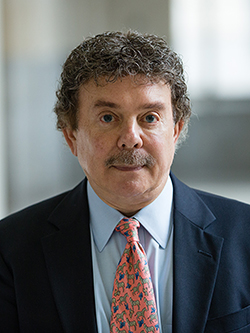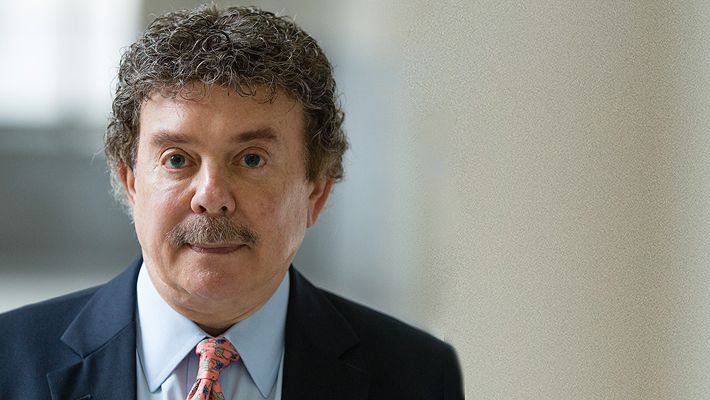Growing up in Baltimore, Jerry Haar’s parents did something unusual for the time: they took the future FIU professor on extensive trips to Latin America and the Caribbean. (He has relatives in Argentina and Brazil.)
It helped spark in Haar, interim director of Executive and Professional Education and a clinical professor in the College of Business’ Department of International Business, a fascination with the region, which he has parlayed into a multi-faceted career.

A year in Mexico was followed by an internship with an engineering company in Brazil, where he later returned as a Fulbright Scholar. He became fluent in Spanish and Portuguese. Haar pulls together these elements to help make sense of the world’s emerging markets in a time of whip-fast technology changes that bend and break companies and sectors like so many trees in a Florida hurricane.
“My area is international business and the international economy, and how it affects strategy, structure, and the operations of companies” he said. “Where I’m focused is in innovation.” He and colleague Ricardo Ernst, professor at Georgetown University’s McDonough School of Business, recently published a book titled “Innovation in Emerging Markets.”
Haar has authored or contributed to over 17 books; he frequently writes for both the popular press, such as the Miami Herald, The Hill, Politico and for professional journals, and is a frequent speaker at conferences, along with teaching at FIU Business. He is also a global fellow at the Woodrow Wilson International Center for Scholars in Washington, D.C., and a senior research associate at Georgetown University’s business school.
An old friend leads to Florida.
He earned his B.A. in international relations at American University, a master’s in psychology at Johns Hopkins University, and a doctorate in political economy at Columbia University. He remained in the northeast, which included heading the Washington office for the Council of the Americas, until a chance encounter in Miami with then-FIU president Gregory Wolfe at a soiree.
Wolfe knew Haar from the time Haar was an adjunct professor of international economics at American University’s School of International Service, where Wolfe was dean at the time. He convinced Haar that the hub of Latin America business scholarship and consulting opportunities lay in South Florida. Haar worked for both FIU and the University of Miami before settling in once again at FIU, where students profit from his depth of experience.
A key question in his research: How can companies advance through competitive innovation? “The emergence of globalization, with technology having leveled the playing field, means you can develop software, write code, carry out multinational corporate support activities whether you are in Boston, Baltimore or Bangladesh,” he said.
At the same time, social media is driving businesses to become more efficient, transparent and responsive, putting decision-making power back in the hands of the consumer.
Against that background, what countries are doing right, and where they are falling short comes into sharp relief. A culture of corruption will throw a shadow on entire industries, and even countries, he said.
“There is more patent and commercialization coming out of Latin America, so the question is, what can governments and the private sector do individually and collectively to retain that talent?,” Haar said. To promote innovation and its commercialization in emerging markets countries must support an ecosystem that includes access to capital, mentoring and changes in tax policy, as well as strong patent protection.
“Every time a talented person leaves an emerging market, you need to find out why,” he added. “If there is corruption, if the judicial system doesn’t work, then that is the reason and that is part of the culture.”
Most recently, Haar is bringing his understanding of international business culture to his role as interim director of Executive and Professional Education (EPE) programs. “My goal for EPE is to create a highly profitable and sustainable business unit that responds to, and creates, demand for timely and relevant continuing education programs that meet the needs of private, public and non-profit organizations and individuals,” Haar said.
In all his teaching, Haar aims to give all students an understanding of how multiple forces come together. “What I focus on are the key concepts and major theories, and in all cases I link theory to practice with real world examples,” he said. “Students should walk away with a clear understanding of the basic tenets, operations and impacts on international business, on the U.S. and global economies, and their own communities.”





